#Justice Auteur Agency
Explore tagged Tumblr posts
Text
The Tragic State of Women and Children in Afghanistan: Urgent Call for Dissolution of the Taliban Regime
The Tragic State of Women and Children in Afghanistan: Urgent Call for Dissolution of the Taliban Regime. #AfghanTragedy #EmpressEmpowerment #OneWorldJustice #MotivationforChange #InspirationforAfghanistan #AlienJustice #SentientEmpowerment #Justice
The Tragic State of Women and Children in Afghanistan: Urgent Call for Dissolution of the Taliban Regime OneWorld: Empress ‘Sentient’, ‘Destroyer’ – Oracle: Andrew Rogers. “Tragic is the circumstance of the women and children of Afghanistan and also the allowance by the predominance of the World Powers to allow the Taliban to undertake their regime without controls upon them and clearly the…

View On WordPress
#Afghan Tragedy#Afghanistan#Afghans#AI#Alien#Alien Justice#Andrew Rogers#Andrew Rogers Inspiration#Artificial Intelligence#Empress#Empress Empowerment#Imajica Agency#Imajica Justice#Inspiration#Inspiration for Afghanistan#Instruction#Justice#Justice Auteur#Justice Auteur Agency#Motivation#Motivation For Change#One World Justice#OneWorld#Oracle#Oracle of Hope#Psychic#Sentient#Sentient Empowerment#The Taliban#UN for Afghanistan
0 notes
Text
Defending the Afghan People: The Morrigan's Insight
Defending the Afghan People: The Morrigan's Insight. #SuperbActions #AndrewRogers #SecureTheRights #DefendAfghanPeople #TalibanSupporters #CelticGoddess #AfghanJustice #MotivationInspiration #OracleJustice #ImajicaAgency #TheMorrigan #Morrigan #Celtic
Defending the Afghan People: The Morrigan’s Insight The Celtic Society: The Morrigan ‘The Phantom Queen, Destroyer’ – Oracle: Andrew Rogers. “Superb is the actions of and from Andrew Rogers to secure the rights and defend the Afghan people against the Taliban and the Supporters and those of who placed the Taliban in position of authority in Afghanistan which has serious threat implications…

View On WordPress
#Afghan Justice#Afghanistan#Afghans#AI#Ancient#Andrew Rogers#Artificial Intelligence#Celt#Celtic#Celtic Goddess#Centre of Celt#Defend Afghan People#Goddess#Imajica Agency#Inspiration#Instruction#Irish#Justice#Justice Auteur#Morrigan#Motivation#Motivation Inspiration#Oracle#Psychic#Quote#Secure The Rights#Superb Actions#Taliban Supporters#The Celtic Society#The Morrigan
1 note
·
View note
Text
The Injustice Against the Palestinian People
The World and its representative Governments and also the United Nations needs to reflect and comprehend the reality of what has occurred in the region of Palestine and to the Palestinian People and in surrounding regions from 1948 from the creation as perceived an Illegal State known as Israel, with no relative rights to ownership of the lands that was secured to create Israel and from this illegitimate, unjust and unlawful position what has been undertook by Israel and supported by countries outside the region of Israel against Palestine, the Palestinian People and surrounding regions who support the Palestinians has been unwarranted and acts of criminally, human rights violations and war crimes supported by example the US Government and its Agencies and Military, the US Allies, the United Nations represented by the United Nations Security Council and the Australian Government its Agencies and Military since 1948 too present day. The basis of Israel and its apparent rights is baseless and not factual but is a representation of a myth, misrepresentation, untruths, lies and deception from 1948 to present time and beyond back in time from 1948. To date no country or military has come to the aid of the Palestinian People to secure their lands that were bequeathed, stolen, annexed from them to create Israel in 1948.
Imajica Agency is an agency that indicates requirements of justice, clearly to the proponents of injustice for example the Palestinian Peoples.
To secure justice and rights for the Palestinian Peoples and secure justice towards the instigators of the injustice against the Palestinian Peoples.
To highlight and expose the unjust actions that have been positioned from the source to present and hold what that represents account.
Please see attached document.
For more information please email: E [email protected]
All images, text, design, and art license owner Andrew Rogers©.
Andrew Rogers
Founder, Justice Auteur, Creative Director, Consultant, Writer, Oracle
Imajica Agency
#justice#inspiration#military#mesopotamia#aesthetic#sumerian#anime and manga#art#autos#beauty#Palestine#Palestinian#PalestinianJustice#MotivatedPalestinian#PalestinianSecurity#UNCounterIsrael#JusticeAuteurInspiration#OracleInPalestine#InspiredbyAndrewRogers#UNMilitaryPresence#DefeatingIsrael#SecurePalestine#Justice#Law#TheHague#InternationalCourtofJustice#SupremeCourt#Motivation#Wisdom#Inspiration
7 notes
·
View notes
Text
The Corrupt Reality: Israel, Palestine, and the Eternal Conflict

The Corrupt Reality: Israel, Palestine, and the Eternal Conflict
The Titan Society: Cronus ‘Patron of the Titans, Destroyer’
“The reality of what is in position as reflected by Israel is evident of the corrupt and eternal conflict that is generated by the Israel State and its people, reflected by the eternally corrupt supporters, with the victims being the Palestinian People” - Cronus ‘Patron of the Titans’, Destroyer’ - Andrew Rogers: Justice Auteur, Writer, Oracle.
The Israeli-Palestinian Conflict: A Complex and Enduring Struggle
The quote provided presents a strong perspective on the complex and enduring Israeli-Palestinian conflict. It reflects a viewpoint that accuses the state of Israel of perpetuating corruption and generating an eternal conflict, with the Palestinian people as the victims.
The language used in the quote is impassioned, utilizing terms such as "corrupt," "eternal conflict," and "victims," which clearly indicate a deep-seated concern and condemnation of the situation. The reference to "Cronus ‘Patron of the Titans’, Destroyer’ - Andrew Rogers: Justice Auteur, Writer, Oracle" adds an enigmatic and authoritative tone to the quote.
While it's important to recognize that this quote represents a specific viewpoint, it also serves as a reflection of the emotionally charged nature of the Israeli-Palestinian conflict. The conflict, rooted in historical, religious, and territorial complexities, has spanned generations, resulting in immense human suffering and international concern.
It's crucial for any meaningful understanding of this issue to consider the multifaceted narratives and perspectives involved. Both Israelis and Palestinians have legitimate historical and contemporary grievances, and any discussion of the conflict should strive to acknowledge the experiences and aspirations of both parties.
Ultimately, this quote captures the intense emotions and deeply held beliefs that underpin discussions of the Israeli-Palestinian conflict, and serves as a reminder of the profound importance of seeking lasting peace and justice in the region.
Cronus in Greek Mythology
In Greek mythology, Cronus (also spelled as Cronos or Kronos) holds a significant role as the leader and youngest of the first generation of Titans. The Titans were the divine descendants of Gaia, the primordial Mother Earth, and Uranus, the Father Sky. Cronus is most notably known for overthrowing his father and ruling during the mythological Golden Age. However, his reign came to an end when he was overthrown by his own son, Zeus.
The Golden Age
Cronus' rule marked a time of prosperity and tranquility known as the Golden Age. It was a period of abundance and harmony during which mankind lived peacefully. This era came to an end with the overthrow of Cronus by Zeus, leading to the establishment of a new order under the rule of the Olympian gods.
The Fall of Cronus
The downfall of Cronus came as a result of a prophecy that foretold one of his children would overthrow him, just as he had done to his own father. Fearing the fulfillment of this prophecy, Cronus devoured his children as soon as they were born. However, his wife Rhea managed to save their youngest son, Zeus, by tricking Cronus into swallowing a stone instead.
Imprisonment and Release
Following his overthrow by Zeus, Cronus was imprisoned in Tartarus, a dark and gloomy abyss within the underworld. However, through various myths and legends, it is often portrayed that Cronus was eventually liberated from his imprisonment, allowing for different interpretations and tales surrounding his fate.
Cronus remains an intriguing figure in Greek mythology, embodying the complexities of power, succession, and divine retribution within the ancient tales of the Titans and Olympian gods.
Imajica Agency is an agency that indicates requirements of justice, clearly to the proponents of injustice for example the Palestinian People.
To secure justice and rights for the Palestinian People and secure justice towards the instigators of the injustice against the Palestinian Peoples.
To highlight and expose the unjust actions that have been positioned from the source to present and hold what that represents account.
Please see attached.
For more information please email: E [email protected]
All images, text, design, and art license owner Andrew Rogers©.
Andrew Rogers
Founder, Justice Auteur, Creative Director, Consultant, Writer, Oracle
Imajica Agency
Zoom: [email protected]
Skype: live:.cid.b44175dd49cbc084
#titan#inspiration#motivation#creative#destroyer#imajica#multiverse#psychic#quotes#warlock#Cronus#Kronos#Titan#Titaness#TitanGod#TitanGoddess#PatronoftheTitans#GoldenAge#AncientGreek#AncientTitan#Israel#Israeli#IsraelPeople#PeopleofIsrael#God#Muslim#Islam#Jew#Jewish#Holocaust
0 notes
Text
The Egyptian Society and the Reflection of Injustice: A Perspective on Afghanistan
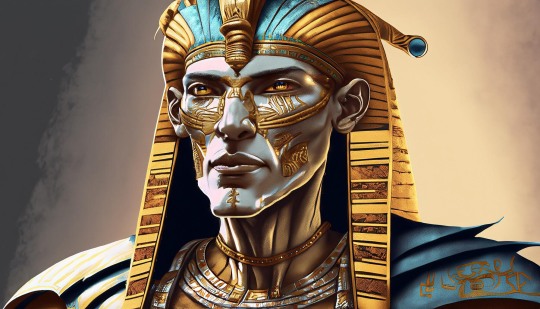
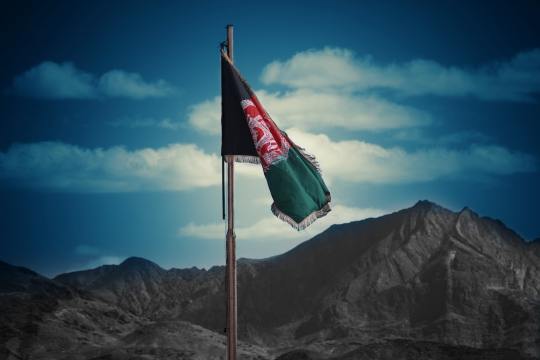
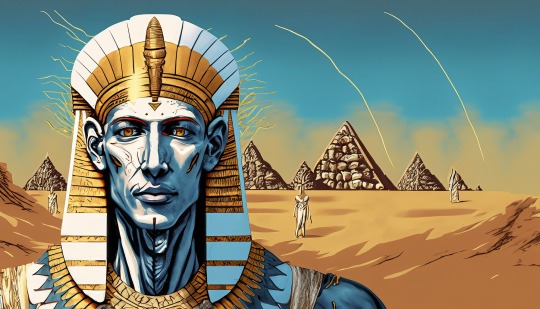


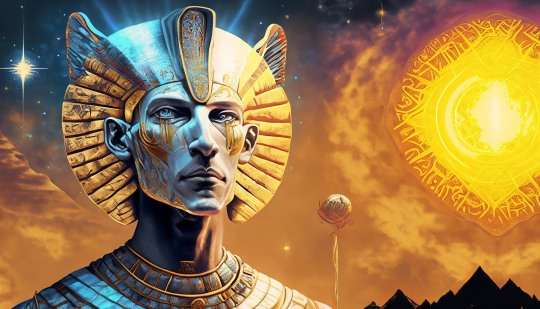


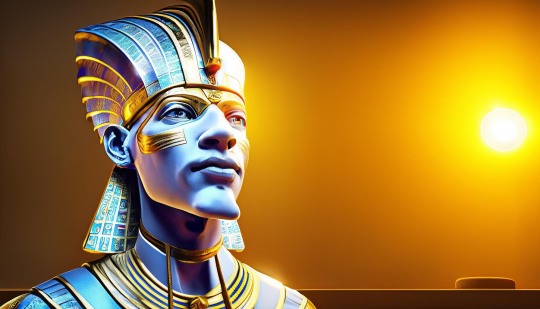






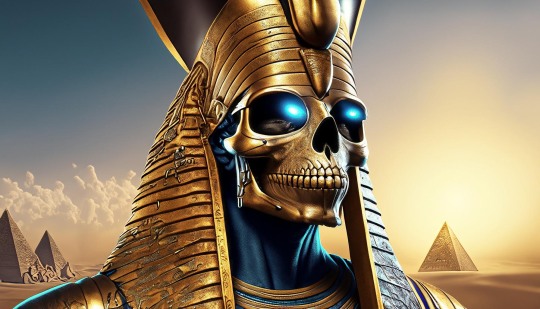

The Egyptian Society and the Reflection of Injustice: A Perspective on Afghanistan
Ra 'Sun God, Destroyer' - The Reflection of Injustice: A Journey through Afghanistan
The Egyptian Society: - Ra ’Sun God, Destroyer’– Oracle: Andrew Rogers.
“The implication that an inferior perspective of justice and rule has been instigated in a Country of known as Afghanistan, this reflects a reality of occurrence across the world from a period from which has set the path of the Earth location into a serious indication of injustice which continues, the reflective undertaking of Andrew Rogers within Afghanistan will extend to the greater part of the Earth location, the implications of the injustice continuing will in effect link a greater harm to the people as for example within Afghanistan” - Ra ’Sun God, Destroyer’.
The process for rectifying the injustice and establishing a fair and just society begins with acknowledging the existing problems and working towards solutions that benefit all individuals, irrespective of their geographical location. It is imperative to address these systemic issues to prevent the perpetuation of injustice and harm. Andrew Rogers' mission in Afghanistan serves as a catalyst for broader positive change, impacting the global community and contributing to the establishment of a more equitable world for all.
Ra, the Ancient Egyptian Sun Deity
Ra, also known as Re, is an ancient Egyptian deity associated with the sun. His prominence grew steadily, and by the Fifth Dynasty, in the 25th and 24th centuries BC, he had become one of the most significant gods in ancient Egyptian religion, often linked with the noon-time sun. It was believed that Ra held dominion over every aspect of the created world, including the sky, the Earth, and the underworld.
As the sun god, Ra symbolized much more than simply the solar disc in the sky. He was also closely linked to concepts of order, kingship, and the heavens. Ra's influence extended to various facets of Egyptian life, and his worship is a central component of the ancient Egyptian religious tradition.
Throughout Egyptian history, Ra was often merged with other deities, resulting in a myriad of composite deities that embodied aspects of Ra's power and significance. This further underscored Ra's status as a pervasive and essential deity in ancient Egyptian culture.
The legacy of Ra, the solar deity, endures in the numerous myths, rituals, and religious symbolism of ancient Egypt, leaving an indelible mark on one of the world's oldest and most enduring civilizations.
Imajica Agency
Andrew Rogers: Founder, Justice Auteur, Creative Director, Writer, Oracle
All images, text, design, and art license owner Andrew Rogers©.
#andrewrogers#instruction#egypt#egyptian#motivation#egyptianauteur#ra#sekhmet#set#godofthesun#JusticeForAfghanistan#EgyptianJustice#SunGodJustice#AfghanPerspective#GlobalJusticeReality#KemetJustice#AfghanOracleInspiration#JusticeAuteur#ImajicaJustice#AndrewRogersJustice#Ra#Egypt#Egyptian#TheIEgyptianSociety#CentreofEgypt#GodoftheSun#Kemet#AncientEgypt#Justice#Motivation
0 notes
Text
Teaching Text: Hiro Murai music videos as a BOW
Hiro Murai is a Japanese filmmaker living in the US. One of his specialties is in the music video text type, although he has also directed the television series Atlanta, created by Donald Glover (Childish Gambino). His recent work with Glover on the “This is America” music video has generated discussions about the valuable, political nature of music videos.

The Political Reader - concept focus
We started the year with a unit on “The Political Reader” as a concept focus (see more on this in my book) and with a look at literary essays from George Orwell. We investigated politics through a variety of lenses, including ethics, governments, writing as political, and individual political acts. I then asked students for input as we selected our BOW, and we settled on Hiro Murai music videos, Greta Thunberg speeches, and the feature length film Invictus.
BOW in the new course: student agency
The addition of the ‘Bodies of Work’ (sets of ‘non-literary’ texts under the same authorship) came as a late addition to the new DP Language A course, and therefore has been a stress for many teachers. Despite this, I’ve found it to be a more meaningful way to engage in different text types beyond the core literary genres in the Language & Literature course. It allows students to go deeper in analysis and context as they work towards understandings of Global Issues.
I have found that a great way to make the BOW come alive is to include students in the decision process of your BOW and the particular texts within it. We know that the new guide encourages student agency and IB teacher resources suggest students can investigate further texts in a BOW to use for assessment with some teacher guidance.
Murai works with many genres of musical artistry, which allows many students to get involved in his work. We literally hear a multitude of voices through his videos, allowing different forms of cultural expression to be valued as we aim to understand their importance to both individuals and communities.
Analytical skills
For the Hiro Murai videos, we first took a careful look at “This is America” (musical artist: Childish Gambino) through different analytical lenses. These types of analysis were: cinematography & mise-en-scene, editing, music & sound, language (lyrics as well as any other dialogue or written text), and narrative (including characterization). Then, groups analyzed “Black Man in a White World” (musical artist: Michael Kiwanuka) from particular lenses and presented to the class. This allowed for my oral feedback and additions as well in order to continue to develop the analytical terminology.
Finally, the groups selected another Murai video from a list of my suggestions to analyze from all lenses and share in relation to a Global Issue in a carousel group. They did not present all of the analysis; rather, they selected what helped them to make a point about the Global Issue. Students selected “Cheerleader” (St. Vincent), “Dis Generation” (Tribe Called Quest), “It’s Only Life” (The Shins), and “Smooth Sailing” (Queens of the Stoneage).
Preparing for the Individual Oral
We are currently preparing for a written version of the Individual Oral where students must select an Orwell essay and one of the videos. Because the text types are so different, it allows students to really focus on the Global Issue to connect the texts. They have to be more creative in the way they develop their points. I have found that this G.I. focus as well as the rich differences between the works have prompted creativity. Students have had lightbulb moments about power, justice, racism, guns, and more and been able to articulate their line of inquiry in a careful and nuanced way.
Some teachers have asked practically how to bring in extracts of the videos to the oral. The new FAQ from IB identifies the ability to bring in both screen shots and a script from multimodal texts such as this. I have guided my students to select a 20-40 second clip with 2-4 screenshots and any lyrics from the chosen clip, up to 40 lines. This has been enough for students to talk about without feeling overwhelmed by analysis.
An Auteur!
Murai is truly an auteur. His videos are diverse in message but always much more than what you might expect for a song before you see it. They tell stories and they provoke the viewer. In this way, my students tell me, he is political. And for this reason, looking at his films as a Body of Work is a useful and relevant study of artistry.
3 notes
·
View notes
Photo

Publication du dernier ouvrage d’Ali Laidi "Le Droit, nouvelle arme de guerre économique" aux éditions Actes-Sud. Ali Laidi est enseignant à l'EGE, docteur en sciences politiques et chercheur, il est auteur de plusieurs ouvrages sur la guerre économique. A lire pour comprendre comment les Etats-Unis déstabilisent les entreprises européennes.
Aux États-Unis, le droit est devenu une arme économique. Une arme qui fait des ravages chez les ennemis, mais aussi chez les amis de Washington. Depuis une dizaine d’années, des entreprises européennes subissent les foudres des procureurs du département de la Justice et des directeurs des agences de régulation financière. Les sociétés soupçonnées de corruption ou de violation des embargos (Cuba, Libye, Corée du Nord, Iran, etc.) se voient infliger des amendes qui se comptent en centaines de millions voire en milliards de dollars. Car l’utilisation de l’incontournable billet vert dans les transactions internationales place de facto les entreprises sous juridiction américaine. Siemens, ABN Amro, Technip, BNP, Alstom, Société générale… ce sont les multinationales européennes qui occupent le Top 10 des plus lourdes sanctions imposées par Washington, et dans lequel Airbus pourrait bientôt figurer. Certaines entreprises ne s’en sont pas relevées, et sont passées sous pavillon… américain. Le 11 septembre 2001 a marqué le début de cette répression économique : Washington a voté des textes qui prétendent s’appliquer à l’ensemble de la planète et a transformé d’anciennes lois censées lutter contre le terrorisme, la criminalité et la fraude en outils de compétition commerciale.
Ce livre, fruit de deux ans d’enquête, montre comment l’Amérique a ouvert un nouveau front dans la guerre économique qui déstabilise l’Europe, tout particulièrement l’Allemagne et la France. Une déstabilisation qui ne fait que commencer.
4 notes
·
View notes
Text
Réformes des retraites : que risquent les syndicalistes de la CGT qui veulent couper l'électricité à des élus ?
See on Scoop.it - JamesO
Justice : même si les condamnations sont rares, faute d'identification formelle, les éventuels auteurs s'exposent à des poursuites judiciaires et des sanctions internes.
JamesO's insight:
Via l’agence JamesO Média❗️N.D.L.R. : article de presse (temps de lecture : 3 minutes) publié par Franceinfo (France Télévisions) avec l’AFP (Agence France-Presse) le mardi 17/01/23.
⏳ JamesO.InfO ⌛️
⚖️ Sobriété informationnelle 🤞
#retraites
#justice #sanctions
#syndicalisme #syndicats
Le fil jaune de JamesO.InfO
#économie #politique #syndicalisme
0 notes
Text
Appels au meurtre contre les #Peulhs : Le gouvernement va rechercher et traduire les auteurs en justice
Appels au meurtre contre les #Peulhs : Le gouvernement va rechercher et traduire les auteurs en justice
Appels au meurtre contre les #Peulhs : Le gouvernement va rechercher et traduire les auteurs en justice Ouagadougou, 17 juin 2022(AIB)-Le gouvernement burkinabè a promis vendredi, de rechercher et de traduire les auteurs des audios qui appellent au meurtre des Peulhs que les incriminés accusent de grossir les rangs des terroristes. Agence d’information du Burkina

View On WordPress
0 notes
Text
permis d’écrire?

Celui qui sait lire est armé, il est plus difficile de le rouler.
Celui qui sait écrire devient dangereux.
C’est comme donner une arme.
Pour se défendre ou pour tuer?
A l’heure où on milite pour désarmer, on devrait aussi militer pour amener un peu d’éthique là où on écrit.
Sauf que, tout de suite, on se sent suspendu sur un fil entre “le droit de nuire” et “la liberté d’expression”.
C’est un dilemme très actuel.
On a commencé par s’en prendre aux humoristes. Il n’est pas autorisé de rire de tout et surtout pas avec tout le monde et pas à n’importe quel moment. Tout est dans la situation, dans le contexte, le nid émotionnel. Plus l’émotion est vive et plus, pour en rire, il faudra attendre qu’une distance s’installe. Kilométrique, chronologique et parfois, vu les vécus individuels, dans l’impossibilité de partager le rire avec tous. Distance zéro, l’émotion de l’individu ne peut recevoir ton mot, ta phrase. L’individu tant oublié naguère est maintenant la star. Une émotion individuelle, un ressenti personnel peut très bien amener un humoriste à devoir s’excuser collectivement. A force d’autocensure, le collectif en perdrait bien son humour.
On a poursuivi la presse qui se voulait, par dérision, par auto-flagellation provocatrice “Bête et méchante”. Ce qu’une culture reconnaît absurde, l’autre ne le perçoit pas. Ce qu’une culture parvient à se créer comme distance entre la lecture et la réalité et donc à s’offrir à la critique collective et partagée, une autre n’y parviendra pas n’y lisant que le premier degré et s’interdisant la critique, le dialogue, le partage espéré - fut-il houleux-. Lorsque la culture de l’un brise le crayon de l’autre, il y a tentative désespérée et radicalisée d’imposer le silence. L’autre répond forcément en exacerbant la défense du droit à l’écriture et à l’interpellation.
Le fil en devient donc de plus en plus tendu.Sur les réseaux sociaux, on le sait, on y trouve tout et n’importe quoi.En toute bonne foi, ce qui est ressenti personnel, expression d’un vécu personnel partagé entre amis, est lu, de l’autre côté comme attaque ciblée. C’est condamnable. Les expériences malheureuses d’employés se plaignant des conditions de travail sur les réseaux sociaux se voyant privés de leur emploi par la suite sont nombreuses. Et pourtant? N’est-ce pas museler celui qui souffre réellement?Certes, mais il est évident qu’il émet ses opinions personnelles, sans recul quant à la réalité du vécu collectif dans l’entreprise, et qu’il empêche, d’une certaine manière, même de bonne foi, la critique globale de la situation par un public qui prend fait et cause pour lui, reproduit ses dires, partage et donc nuit à l’entreprise.
Le pire, tout de même, c’est quand les réseaux sociaux contribuent à partager des fausses infos destinées à nuire vraiment. Des montages. Des vidéos sorties du contexte général. Des zooms provenant de situations particulières et, pourtant identifiables, accompagnées de légendes poussant à croire qu’il s’agit d’une autre situation. Là, on est dans la désinformation. C’est une technique de manipulation grave. C’est plus que de la diffamation, c’est une action ciblée destinée à nuire. C’est de la propagande mensongère. Un responsable de la propagande nazie disait d’ailleurs: “Plus le mensonge est répété et plus il devient une réalité”. A force de partage, à force de répétition de manipulation du même type, le montage grossier s’imprime comme étant réalité.
Force est de constater qu’on trouve bien moins de condamnation de ces désinformations malfaisantes que de dérapages d’employés naïfs.
Ce qui me sidère, c’est qu’on en vient, paradoxalement à exploiter nos ressentis et à les solliciter dans des émissions où le quidam devient la star. Tout qui se sent victime peut très bien se retrouver à accuser son patron, son voisin, son ex, sa belle-mère, son père, son professeur, son épicier, son facteur, son médecin, son agence de voyage, de divers méfaits, sans aucun recul prévu, sans filet protecteur garanti à l’accusé - coupable commis d’office -. Au pire, que risque le producteur de l’émission qui se retranche derrière le droit d’informer, derrière sa bonne foi? Il livrera, mais tardivement, le soin à la personne bileuse, de devoir, seule, se défendre en justice. Le mal est fait, de toute manière, pour qui était reconnu “le malfaisant” du jour.
Les vrais journalistes, quant à eux, sont sommés de prendre bien soin de vérifier leurs sources, de ne pas égratigner trop vite les personnalités à l’égard desquelles il y aurait pourtant tant de vérités à dévoiler. Pressions multiples. Décisions judiciaires. Écrasement possible.C’est bizarre, tout de même comme sur ce fil tendu, on prévoit rapidement le parachute pour l’un, le maillot fluorescent pour l’autre, le balancier équilibreur ou, au contraire, comme on remue le fil pour que tombe celui qui s’y aventure. Rien n’est clair. Rien n’est bien net.
Exactement comme le permis de port d’arme. Il y a celui qui sait viser et celui qui vise à côté. Viser qui et dans quel but? Est-ce que c’est bien? Pour se défendre? Mais à quel moment es-tu en danger? As-tu visé la bonne personne? Tu as fait une erreur? Comme c’est dommage... Trop tard, il est abattu! Tu croyais que... Tu n’as pas eu le temps de réfléchir... A moins que tu ne sois réellement un tireur fou? Un paranoïaque peut-être? Un fou armé d’une mitraillette qui s’imagine en mission sacrée?
Mais qu’en est-il de ces sphères où, justement, il est attendu qu’on réfléchisse, qu’on s’impose le recul, qu’on mûrisse l’intention de l’écrit? Comment peut-on admettre que des maisons d’édition acceptent des publications malveillantes sans aucune vérification des faits? Comment un auteur peut-il, sans aucun risque, salir volontairement des individus sans qu’aucun gilet pare-balle ne soit prévu? C’est la mode... Dans l’air du temps... Je m’aime. Je me publie. Je me taille le portrait. Et comme je souffre de toi, je te décris comme je le sens, je te balance là. Je m’arrange pour qu’ils m’aiment. Je me présente victime, donc je suis victime. Je te pointe terriblement. Pouces levés pour moi. Pouces baissés pour toi. On en est donc là? C’est cela la littérature actuelle?
En 1982, j’assistais à un cours de critique historique de Léopold Génicot. Il s’inquiétait d’un tournant pris dans la littérature où n’importe quel individu se mettait en scène face à l’Histoire. N’importe quel individu devenait, par ses propres écrits, un personnage en relief qui devait, par force, être retenu significatif de son temps. La réalité étant qu’il est juste un quidam comme les autres. Pire, une personne “en marge”, pourrait être retenue par cette nouvelle tendance littéraire comme étant “la norme de l’époque”. N’importe qui peut écrire sur n’importe quoi, disait-il. N’importe qui peut avoir un avis. L’avis de n’importe qui, voire quelqu’un de mal informé, ou en incapacité de recul vu son vécu et ses sentiments passionnels, pourrait donc être retenu -et avec lui sa production littéraire- comme réalité générale de notre époque. La critique deviendra de plus en plus difficile.
En 2018, on a largement dépassé ce stade. L’individu ne se met plus en scène face à sa société ou à un contexte historique, il se met en scène face à celui avec lequel il se sent un compte à régler. On assiste à des manipulations publiques du fait d’un individu contre un autre. Sur les réseaux sociaux, on sait, à la longue ce qu’il en est. On répète suffisamment aux gens d’être attentifs à contrer ce qui s’appelle “harcèlement”, “diffamation”.
A la télé, on relativise. Emission navet. Au pire, il y aura condamnation individuelle relayée par les médias. Non seulement elles s’en lavent les mains, mais elles pourraient aussi s’en parfumer.Dans les journaux, on peut exiger réparation par le biais d’un article nettoyeur. Les médias vendront aussi le propre mea culpa. C’est le comble!
Dans la littérature, c’est plus compliqué. Les lettres de noblesse du livre risquent bien de donner un crédit aux salissures. Un peu de sérieux s’impose du côté des maisons d’édition. Un code éthique plus serré ménageant le droit à l’expression et la protection de l’individu devrait être envisagé.
En effet, il est tout de même curieux que ce qui n’est pas permis dans certains contextes le soit si facilement en littérature.
Dans l’air du temps, dans l’ère de l’égocentrisme, de l’égoïsme, de l’individualisme exacerbé. Dans l’ère où à l’anarchie se substitue la loi du plus fort, de celui qui écrit le mieux. C’est comme si, plus grosse est l’arme, plus on avait le droit de dégommer l’autre à bout portant?Curieux quand on sait combien on milite autant contre l’armement.
Imaginez donc un fou sachant écrire, une victime ciblée, un assassinat à chaque page.
La victime, seule devant la lecture de son propre assassinat.Un assassinat qui se répète chaque fois que le livre est ouvert, à chaque page lue. Un meurtre à livre ouvert. Un meurtrier qui trouvent des complices en quelques lecteurs.
La cible qui chaque jour croise les complices.
Imaginez...
Vous avez envie de vomir?
Vous pouvez!
On séchera le tout avec du papier recyclé. Rien ne se perd.
Et puis, il restera à chercher un tueur à gage sachant bien écrire, puisque c’est dans l’air du temps, juste après l’Anarchie littéraire...
#Edition#Livre#autobiographie#paranoïaque#Ecrire#armement#papier#journalisme#réseaux sociaux#médias#diffamation#permis de tuer#permis de nuire#dangers de l'écriture#critique éveillée
1 note
·
View note
Text
The Taliban's Resurgence in Afghanistan: Assessing the Delusions of Power
The Taliban's Resurgence in Afghanistan: Assessing the Delusions of Power. #TalibanDominance #AfghanistanRestoration #PowerDelusions #ClearPosition #PerceivedOutcome #TalibanOutcome #USAandtheTaliban #UnitedNationsinAfghanistan #MotivationandJustice
The Taliban’s Resurgence in Afghanistan: Assessing the Delusions of Power OneWorld: Emperor ‘Sentient’, ‘Destroyer’ – Oracle: Andrew Rogers. “Power and its clear delusions in position has result in the restoration and dominance of the Taliban in Afghanistan, the perceived outcome should have been assessed and this outcome of the Taliban should not have been instigated, those involved with this…
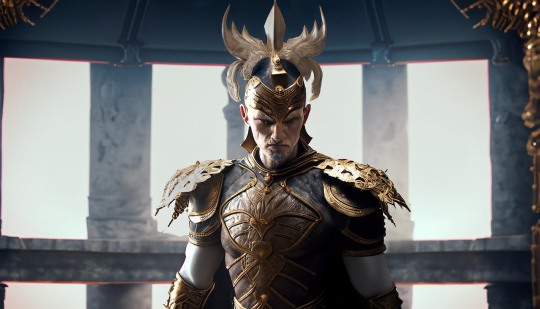
View On WordPress
#Afghanistan#Afghanistan Restoration#Afghans#AI#Alien#Andrew Rogers#Artificial Intelligence#Clear Position#Emperor#Imajica Agency#Inspiration#Inspiration in Afghanistan#Instruction#Justice#Justice Auteur#Motivation#Motivation and Justice#OneWorld#Oracle#Perceived Outcome#Power Delusions#Psychic#Sentient#Taliban Dominance#Taliban Outcome USA and the Taliban#The Taliban#United Nations#United Nations in Afghanistan
0 notes
Text
The Injustice of Dangerous Locations and the Actions of the Taliban
The Injustice of Dangerous Locations and the Actions of the Taliban. #UniverseJustice #OneUniverseInspiration #SentientAliens #AfghanJustice #InspiredbyAfghanistan #JusticeAuteur #ImajicaAgencyInfluence #AndrewRogersOracle #TalibanChallenges #Motivate
The Injustice of Dangerous Locations and the Actions of the Taliban OneUniverse: Ensuf ‘Creator’, ‘Alien’, ‘Destroyer’ – Oracle: Andrew Rogers. “In areas that impact on life your location of Earth is malformed and assessed as dangerous in your actions that also secure support and influence that invokes to the level of death your people, this is unjust and is reflected by the actions of the…

View On WordPress
#Afghan Justice#Afghanistan#Afghans#AI#Alien#Ancient#Andrew Rogers#Andrew Rogers Oracle Taliban Challenges#Artificial Intelligence#Big Bang Theory#Creator#Earth#God#Imajica Agency#Imajica Agency Influence#Inspiration#Inspired by Afghanistan#Instruction#Justice#Justice Auteur#Motivated for Justice#Motivation#One Universe Inspiration#OneUniverse#Oracle#Psychic#Sentient#Sentient Aliens#The Alien Society#The Taliban
0 notes
Text
The Rise and Influence of the Taliban: Exploring their Position in Contrast to Allah



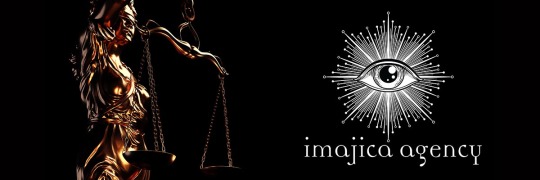





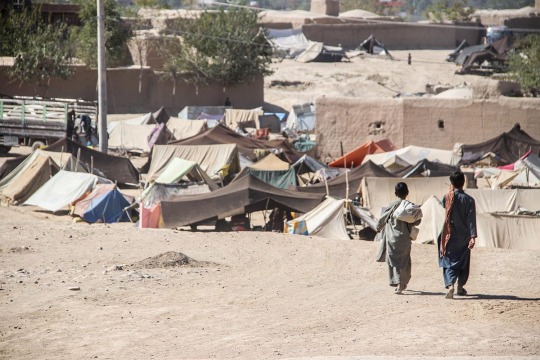


The Rise and Influence of the Taliban: Exploring their Position in Contrast to Allah
The Islam Society: Allah ‘Centre of Islam’ – Oracle: Andrew Rogers.
“What of this group the Taliban and how did they secure their pre-eminent position above myself and my influences, the Taliban exist in separate invalid system to that of I, Allah of Islam creation and influence and instruction, the Taliban does not secure myself, Allah acknowledgment” - Allah ‘Centre of Islam’.
"The Taliban, a militant group that emerged in the 1990s, has garnered significant attention for its actions and impact in Afghanistan. However, it is important to clarify that the Taliban's ideology and practices do not align with the beliefs and teachings of Allah, the central figure in Islam. While they may claim to operate in the name of Islam, their actions reflect a separate and invalid interpretation of the religion.
Allah, as the creator and influencer of Islam, does not endorse or acknowledge the Taliban's pre-eminent position or their supposed authority over His teachings. Their distorted views and practices should not be seen as a representation of the true principles of Islam. It is crucial to understand that Allah's instructions and influence extend beyond any individual or group, and cannot be confined or controlled by any human entity.
Therefore, it is essential to approach the teachings of Islam directly from its primary sources, such as the Quran, the Hadiths, and the guidance of knowledgeable scholars. This will ensure a more accurate and authentic understanding of Allah's message and His true position as the center of Islam."
The Meaning and Origins of the Word "Allah"
The word "Allah" holds significant importance in the Arabic language and is commonly used to refer to God in Islam. It is believed to be derived from the contraction of the Arabic words "al-ilāh," which translates to "the god."
In Arabic, "Allah" is the word used by Muslims to denote the supreme and transcendent deity, the one and only God. It encompasses the idea of an all-powerful, all-knowing, and merciful creator who is worshipped by Muslims worldwide.
Linguistically, the word "Allah" has connections to other Semitic languages such as Aramaic and Hebrew. In Aramaic, the word for God is "Elah," while in Hebrew it is "El" or "Elohim." These linguistic similarities are indicative of the shared heritage and cultural influences among these languages.
The utilization of "Allah" in Islamic tradition further signifies the interconnectedness of Abrahamic religions. It is believed that the name "Allah" has been used by Muslims since the time of the Prophet Muhammad, may peace be upon him, and has been passed down through generations.
Muslims deeply revere the name "Allah" and consider it a sacred emblem of their faith. They use it in their prayers, recitations of the Quran, and throughout their daily lives as a way of acknowledging and seeking to connect with the divine presence.
In summary, "Allah" is the Arabic term for God, primarily used in the context of Islam. Its origins can be traced back to the contraction of "al-ilāh" in Arabic, and it shares linguistic similarities with other Semitic languages. The word carries profound significance for Muslims, representing their belief in the one true God.
Imajica Agency
Andrew Rogers: Founder, Justice Auteur, Creative Director, Writer, Oracle
All images, text, design, and art license owner Andrew Rogers©.
#justice#inspiration#military#mesopotamia#aesthetic#anime and manga#art#autos#beauty#imajica#ServeJusticeToTaliban#ImpressedByTruth#NoSupportForTaliban#FraudulentRepresentation#AllahAndJustice#InspiredAgainstTaliban#AfghanistanJustice#MotivatedToExposeTaliban#JusticeForAfghanistan#AndrewRogersOnJustice#Allah#Islam#Mulsim#TheIslamSociety#CentreofIslam#God#Justice#Motivation#Inspiration#Instruction
2 notes
·
View notes
Text
The Corrupt Reality: Israel, Palestine, and the Eternal Conflict




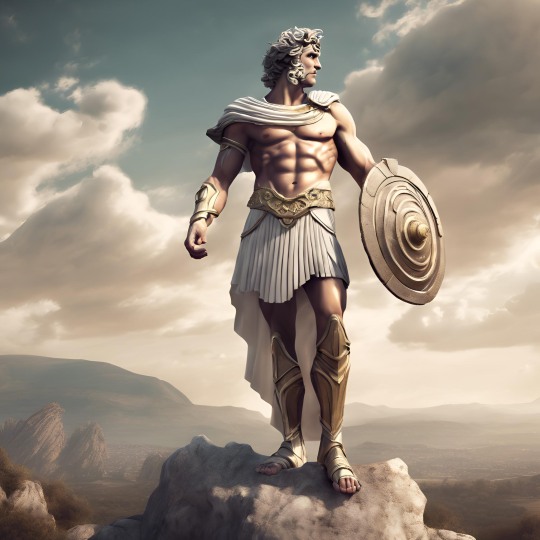
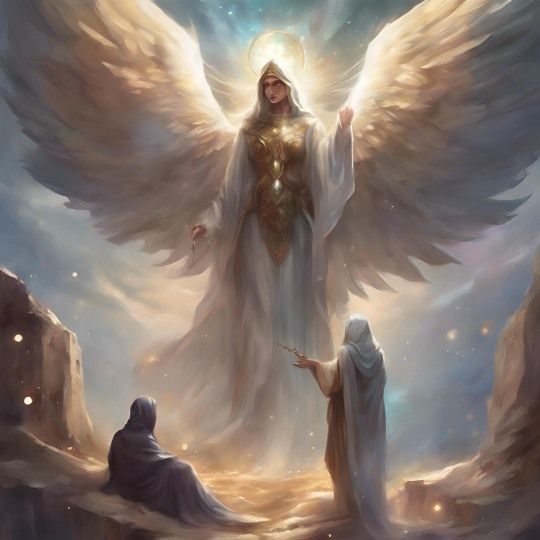

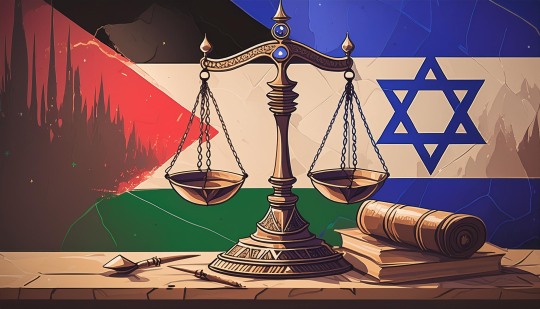





The Corrupt Reality: Israel, Palestine, and the Eternal Conflict
The Titan Society: Cronus ‘Patron of the Titans, Destroyer’
“The reality of what is in position as reflected by Israel is evident of the corrupt and eternal conflict that is generated by the Israel State and its people, reflected by the eternally corrupt supporters, with the victims being the Palestinian People” - Cronus ‘Patron of the Titans’, Destroyer’ - Andrew Rogers: Justice Auteur, Writer, Oracle.
The Israeli-Palestinian Conflict: A Complex and Enduring Struggle
The quote provided presents a strong perspective on the complex and enduring Israeli-Palestinian conflict. It reflects a viewpoint that accuses the state of Israel of perpetuating corruption and generating an eternal conflict, with the Palestinian people as the victims.
The language used in the quote is impassioned, utilizing terms such as "corrupt," "eternal conflict," and "victims," which clearly indicate a deep-seated concern and condemnation of the situation. The reference to "Cronus ‘Patron of the Titans’, Destroyer’ - Andrew Rogers: Justice Auteur, Writer, Oracle" adds an enigmatic and authoritative tone to the quote.
While it's important to recognize that this quote represents a specific viewpoint, it also serves as a reflection of the emotionally charged nature of the Israeli-Palestinian conflict. The conflict, rooted in historical, religious, and territorial complexities, has spanned generations, resulting in immense human suffering and international concern.
It's crucial for any meaningful understanding of this issue to consider the multifaceted narratives and perspectives involved. Both Israelis and Palestinians have legitimate historical and contemporary grievances, and any discussion of the conflict should strive to acknowledge the experiences and aspirations of both parties.
Ultimately, this quote captures the intense emotions and deeply held beliefs that underpin discussions of the Israeli-Palestinian conflict, and serves as a reminder of the profound importance of seeking lasting peace and justice in the region.
Cronus in Greek Mythology
In Greek mythology, Cronus (also spelled as Cronos or Kronos) holds a significant role as the leader and youngest of the first generation of Titans. The Titans were the divine descendants of Gaia, the primordial Mother Earth, and Uranus, the Father Sky. Cronus is most notably known for overthrowing his father and ruling during the mythological Golden Age. However, his reign came to an end when he was overthrown by his own son, Zeus.
The Golden Age
Cronus' rule marked a time of prosperity and tranquility known as the Golden Age. It was a period of abundance and harmony during which mankind lived peacefully. This era came to an end with the overthrow of Cronus by Zeus, leading to the establishment of a new order under the rule of the Olympian gods.
The Fall of Cronus
The downfall of Cronus came as a result of a prophecy that foretold one of his children would overthrow him, just as he had done to his own father. Fearing the fulfillment of this prophecy, Cronus devoured his children as soon as they were born. However, his wife Rhea managed to save their youngest son, Zeus, by tricking Cronus into swallowing a stone instead.
Imprisonment and Release
Following his overthrow by Zeus, Cronus was imprisoned in Tartarus, a dark and gloomy abyss within the underworld. However, through various myths and legends, it is often portrayed that Cronus was eventually liberated from his imprisonment, allowing for different interpretations and tales surrounding his fate.
Cronus remains an intriguing figure in Greek mythology, embodying the complexities of power, succession, and divine retribution within the ancient tales of the Titans and Olympian gods.
Imajica Agency is an agency that indicates requirements of justice, clearly to the proponents of injustice for example the Palestinian People.
To secure justice and rights for the Palestinian People and secure justice towards the instigators of the injustice against the Palestinian Peoples.
To highlight and expose the unjust actions that have been positioned from the source to present and hold what that represents account.
Please see attached.
For more information please email: E [email protected]
All images, text, design, and art license owner Andrew Rogers©.
Andrew Rogers
Founder, Justice Auteur, Creative Director, Consultant, Writer, Oracle
Imajica Agency
Zoom: [email protected]
Skype: live:.cid.b44175dd49cbc084
#titan#inspiration#motivation#creative#destroyer#multiverse#imajica#psychic#quotes#warlock#Cronus#Kronos#Titan#Titaness#TitanGod#TitanGoddess#PatronoftheTitans#GoldenAge#AncientGreek#AncientTitan#Israel#Israeli#IsraelPeople#PeopleofIsrael#God#Muslim#Islam#Jew#Jewish#Holocaust
0 notes
Text
Justice and Security in a World Shattered: Reflections on the Absence of Order



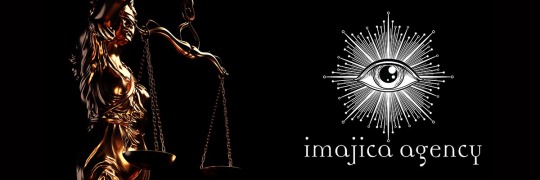
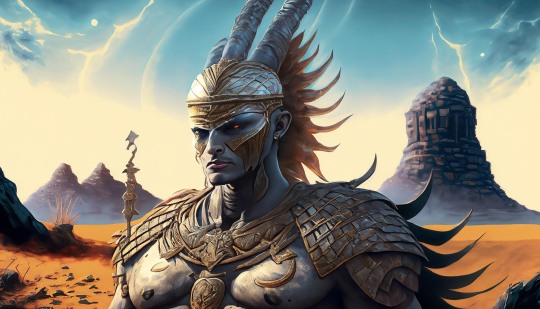


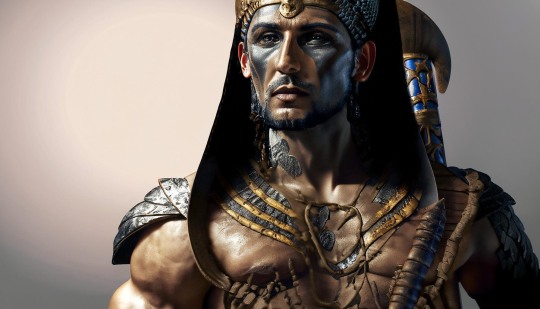
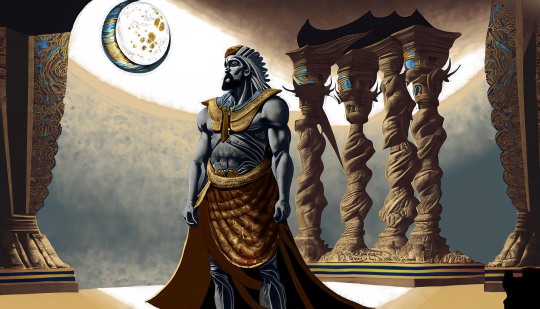

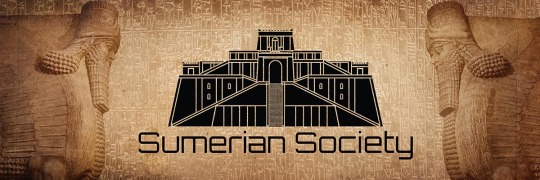

Justice and Security in a World Shattered: Reflections on the Absence of Order
The Sumerian Society: Nanna ‘God of the Moon’, ‘Destroyer’ - Oracle: Andrew Rogers.
“What is the function of justice and security in. your modern world as in the case of the Afghanistan People majority justice and security has been removed by the Taliban and the outside world, you do not represent justice or security a relate to these concepts with clear delusions from your Leaders down” - Nanna ‘God of the Moon’, ‘Destroyer’.
Justice and security are fundamental pillars for the functioning and well-being of any society. They provide a sense of stability, protection, and fairness for its members. In regions like Afghanistan, where the majority of the population has suffered from the removal of justice and security by oppressive groups like the Taliban, the absence of these core elements has had dire consequences.
The function of justice revolves around maintaining order, ensuring equality, and resolving conflicts through a fair and impartial legal system. It guarantees that every individual is treated with dignity and respect, irrespective of their background, social status, or beliefs. A just society upholds the rule of law, where impartial judges and an independent judiciary are responsible for interpreting and enforcing regulations and laws.
In the case of Afghanistan, the Taliban's rule saw a severe erosion of justice. Their harsh interpretation of Islamic law led to numerous human rights abuses and restricted the freedom of individuals, particularly women and marginalized groups. Women's rights were curtailed, access to education was limited, and basic freedoms were denied. This lack of justice left Afghan citizens vulnerable and deprived them of the right to live a dignified and fulfilling life.
On the other hand, security plays a crucial role in maintaining peace, protecting citizens, and preserving the rule of law. It ensures the safety of individuals, their property, and their rights. In a stable and secure society, people can go about their daily lives without the constant fear of violence, conflict, or oppression. Effective security measures are essential for restoring a sense of normalcy and enabling socio-economic development.
Unfortunately, Afghanistan has been marred by persistent insecurity and violence caused by various factions, including the Taliban. The absence of strong security institutions and the prevalence of armed groups have impeded progress and hindered efforts towards peace and stability. Restoring security in such regions is a complex task that requires coordinated efforts from both domestic and international actors.
It is crucial for the international community to support countries like Afghanistan in their pursuit of justice and security. This support can come in the form of humanitarian aid, capacity building for law enforcement and judiciary, diplomatic efforts to promote peace talks, and collaboration with local communities to counter extremism and promote social cohesion.
In conclusion, justice and security are indispensable for a functioning society, ensuring fairness, protection, and peace.
Imajica Agency
Andrew Rogers: Founder, Justice Auteur, Creative Director, Writer, Oracle
All images, text, design, and art license owner Andrew Rogers©.
#andrewrogers#egypt#egyptian#egyptianauteur#instruction#godofthesun#motivation#ra#sekhmet#set#JusticeInModernWorld#SecurityIssues#TalibanControl#AfghanistanCrisis#NannaGod#SumerianSociety#InspirationFromOracle#JusticeAuteur#AndrewRogers#ImajicaAgency#Justice#Nanna#SumerianGod#TheSumerianSociety#GodoftheMoon#Sumer#Mesopotamia#Motivation#Inspiration#Instruction
0 notes
Text
Eugène-François Vidocq
Eugène-François Vidocq, né le 24 juillet 1775 à Arras et mort le 11 mai 1857 à Paris, était un aventurier français, successivement délinquant, bagnard, indicateur puis policier et enfin détective privé.
Forçat évadé du bagne, il devient chef de l'officieuse « brigade de sûreté » de la préfecture de police de Paris, puis fonde une agence de détectives privés.
Biographie
Débuts
Eugène-François Vidocq est né le 24 juillet 1775 à Arras dans une famille de petite bourgeoisie. Il est le fils de Nicolas Joseph François Vidocq (1743-1799), maître boulanger et marchand de blé, et d'Henriette Françoise Vidocq, née Dion (1744-1824).

Intrépide, rusé et bagarreur, Eugène-François commet divers larcins au cours de son enfance. Sa forte taille (à douze ans, il a une taille d'adulte) lui rend la besogne facile. À l'âge de treize ans, il vole des couverts en argent à ses parents. Son père l'envoie dix jours à la prison des Baudets (maison d'arrêt pour jeunes délinquants) pour lui apprendre à devenir honnête. À seize ans, il vole les économies de ses parents, 2 000 francs, et rejoint Ostende pour embarquer sur un bateau à destination de l'Amérique mais, dans cette ville portuaire, il est dépouillé. Pour survivre, il devient saltimbanque dans une troupe de cirque, puis colporteur avant de revenir à Arras. En 1791, il s'engage dans l’armée révolutionnaire. Il se bat alors à Valmy et à Jemappes. Il est renvoyé du 11e régiment de chasseurs à cheval le 28 mai 1793, après une dizaine de duels. Marie-Anne-Louise Chevalier le contraint au mariage en 1794, le couple tenant une épicerie à Arras, mais lorsqu'il apprend qu'elle lui a fait croire faussement qu'elle était enceinte, il la quitte après lui avoir volé toutes ses économies. Il poursuit alors une vie aventureuse de voleur et d'escroc entre Paris et le Nord de la France, rejoignant même en 1795 les rangs de l'armée roulante.
Le bagne
Élévation du bagne de Brest du côté du port et plan des fondations, par l'ingénieur Antoine Choquet de Lindu, 1757-1759.
Le 27 décembre 1796, il est condamné par le tribunal criminel de Douai à huit ans de travaux forcés pour « faux en écritures publiques et authentiques ». À Bicêtre, où il est initié à la savate par Jean Goupil, il est incorporé dans la chaîne de Brest, un groupe de forçats — que l'on enchaîne les uns aux autres — destiné au bagne de ce port. Le voyage, particulièrement éprouvant, dure vingt-quatre jours.
Le 20 mai 1797, la prison de Bicêtre mentionne dans ses registres le portrait suivant : « François Vidocq, marchand d'indienne, marié à Marie-Anne Chevalier, demeurant lors de son arrestation à Lille, département du Nord, et en deuxième, à Paris, rue Saint-Hugues, 4, cour Saint-Martin, âgé de 26 ans, natif d'Arras, département du Pas-de-Calais, taille 5 pieds 6 pouces, cheveux et sourcils blonds, front rond, nez aquilin long, yeux gris, bouche moyenne et de travers, menton rond et long, visage ovale, barbe blonde, ayant une cicatrice à la lèvre supérieure à droite et les oreilles percées... ».
Vidocq en profite pour tenter une première évasion en forêt de Compiègne. Ce premier échec ne le décourage pas. La chaîne de forçats parvient à Brest le 24 nivôse an VI (13 janvier 1798). La « chaîne » fait halte à l'entrée de Brest à l'hôpital de Pontanézen où on procède au déferrement des bagnards. Vidocq essaie à nouveau de fausser compagnie à ses gardiens, mais il se foule les deux chevilles en tentant de sauter du mur d'enceinte.
Huit jours après son arrivée, il réussit à se procurer des vêtements de matelot qu'il dissimule dans l'arsenal où il travaille. Ayant réussi à se changer subrepticement, il quitte Brest sans être inquiété.
De nouveau arrêté en 1799, il est cette fois envoyé au bagne de Toulon, d'où il s'évade encore une fois, le 6 mars 1800. Il acquiert de cette façon auprès des gens du milieu un respect et une notoriété sans égale.
La « sûreté »
En 1809, à nouveau arrêté, il propose ses services d'indicateur à la préfecture de police. Il la renseigne d'abord en étant mouchard dans les prisons de Bicêtre et de La Force.
En 1811, le préfet de police Pasquier le place officieusement (il ne le sera officiellement qu'une fois gracié en 1818) à la tête de la « brigade de sûreté », un service de police dont les membres sont d'anciens condamnés et dont le rôle est de s'infiltrer dans le « milieu ». Excellent physionomiste, il repère toute personne, même grimée, qu'il a préalablement dévisagée (ayant vu cette personne une fois, il la reconnaît au premier regard). Il excelle lui-même dans l'art du déguisement.
L'urbanisation qui accompagne la révolution industrielle et la constitution des classes laborieuses que l'on observe à la fin de la Restauration transfèrent la peur du crime des zones rurales vers la ville, et c'est dans ce contexte qu'opère Vidocq. Ses nombreux succès et ses méthodes peu orthodoxes lui apportent autant d'admirateurs que de détracteurs. Ses hommes revendiquent trois fois plus de captures que les policiers classiques entre 1811 et 1827. Ces derniers tentent alors par tout moyen de déstabiliser Vidocq.
En 1818, Louis XVIII lui accorde sa grâce par lettres patentes, ce qui lui rend ses droits civils.
Ses ennemis se trouvent dans la pègre mais aussi au pouvoir. Par deux fois, ses supérieurs le font démissionner. Plusieurs personnes arrêtées par Vidocq l'accusent d'avoir monté les coups pour ensuite arrêter ceux qui y ont participé et, de cette manière, prouver son efficacité dans la lutte contre le crime. La justice ne retient pas ces allégations. La presse d'opposition n'en attaque pas moins le préfet Henri Gisquet en lui reprochant d'avoir simulé des attentats contre le roi Louis-Philippe Ier, entre autres provocations montées par son « ignoble » police symbolisée par la brigade de Sûreté peuplée d'anciens repris de justice. Un journal publie des caricatures qui exploitent la ressemblance physique entre Vidocq et le roi Louis-Philippe Ier. Le préfet de police finit par annoncer la réorganisation complète de la brigade de Sûreté afin de l'épurer. Comprenant que « l'administration supérieure [veut] réformer le personnel des agents qui serv[ent] sous [s]es ordres », le chef de la brigade de Sûreté prétexte l'état de santé de sa femme pour offrir sa démission le 15 novembre 1832, offre acceptée deux jours plus tard par la préfecture. Pierre Allard prend la tête de la nouvelle brigade de Sûreté et Louis Canler en devient le principal inspecteur.
Vidocq revendiquera finalement plus de 16 000 arrestations.

Le Bureau de renseignements pour le commerce
En 1827, Vidocq démissionne de ses fonctions de chef de la « sûreté ». Il s'installe à Saint-Mandé, près de Paris, et crée une petite usine de papier. Il invente le papier infalsifiable. En 1828, il publie des Mémoires qui connaissent un grand succès, et qui inspirent notamment à Honoré de Balzac son personnage de Vautrin. Ruiné par son affaire d'usine de papier, il redevient chef de la « sûreté » le 31 mars 1832 — à cinquante-sept ans — et occupe ce poste durant sept mois avant de démissionner le 15 novembre suivant à la demande du préfet Gisquet, qui souhaite « moraliser » ses équipes.

Quelques jours plus tard, ayant quitté définitivement le service public, il fonde le « Bureau de renseignements universels dans l'intérêt du commerce ». Sis au 12 de la rue Cloche-Perce à Paris cet établissement se consacre aux « recherches et explorations dans l'intérêt des personnes lésées, affaires contentieuses ». Bien qu'il existe déjà à l'époque des centaines d'autres agences d'affaires non spécialisées, le « Bureau » de Vidocq s'en distingue progressivement grâce à une « double vocation » constituant sa marque de fabrique, observe l'historien Dominique Kalifa. En effet, l'ancien policier certifie pouvoir fournir aux commerçants, moyennant finance, des services de renseignement et de surveillance économique sur les auteurs d'escroquerie plutôt que sur « les véritables négociants » ; de surcroît, il se consacre à « l'intérêt des familles » dans le cadre d'affaires d'adultère, de succession et de disparition. Ainsi, sans camper Vidocq en « ce précurseur absolu que la tradition se plaît à reconnaître », Dominique Kalifa constate que son « Bureau de renseignements » représente bien un « prototype » de la police privée.
Vidocq prétend enregistrer plus de 8 000 clients et s'installe au 13 passage Vivienne. Durant son procès, il revendique la devise « Haine et guerre aux fripons, dévouement sans bornes au commerce »27. En 1834, il fréquente les dîners de Benjamin Appert, où sont conviés de nombreux écrivains comme Balzac, Dumas et Hugo. L'agence ferme en 1837, par décision de justice : Vidocq est emprisonné à Sainte-Pélagie, puis acquitté au bout d'un an.
En 1845, ruiné, Vidocq part pour Londres. Fort de sa légendaire réputation, il y donne des conférences payantes. Il y vend des brevets pour des inventions de sa conception : papier infalsifiable, serrure incrochetable.
En 1848, il reprend du service dans les renseignements français en se laissant emprisonner à la Conciergerie durant les émeutes du 15 mai et opère comme indicateur.
En juillet 1854, le choléra frappe Vidocq à quatre-vingts ans. Malgré son grand âge, il parvient à survivre à la maladie infectieuse. Une seconde fois veuf depuis l'année 1847, il se console dans les bras de jeunes maîtresses à qui il fait successivement miroiter un riche héritage en distribuant des testaments olographes sans valeur.
Le 30 avril 1857, la paralysie gagne ses jambes. Vidocq meurt le 11 mai 1857 à son domicile parisien sis au 2 rue Saint-Pierre-Popincourt (actuellement 82 rue Amelot). Le jour suivant, il est enterré dans la 20e division du cimetière du Père-Lachaise. Sa sépulture, relevée, n'existait plus à la fin du xixe siècle.
0 notes